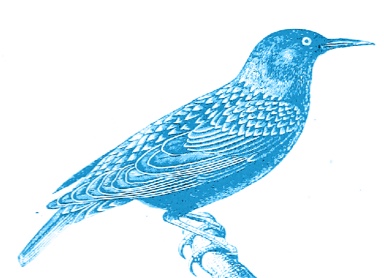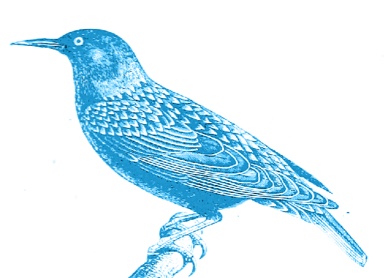When it comes to marketing to young girls going through a “princess phase,” there is only one color that matters anymore: pink. In her new book, “Cinderella Ate My Daughter,” Peggy Orenstein argues that this commercialized princess stage is unnatural and asks if all of the pink is really necessary.
Peggy joined us in TheMotherhood to talk about her book and the effects princess culture can have on raising our daughters. You can read the entire fascinating and insightful conversation here: http://tmotherhood.wpengine.com/talk/show/id/62126
“What disturbed me most was that girls were being encouraged at an increasingly younger age to define themselves through appearance and play-sexiness, that the marketing had just gotten very, very intense towards 3-5 year olds,” Peggy commented. “I’m not saying that if you wave a magic wand at 2 you’re going to be sexting at 13, but parents really need to understand the arc of what’s being marketed to girls.”
From Snow White to Snooki
Going beyond fairy-tale princesses, participant Morra wondered how real-life “princesses” on reality TV shows such as “Keeping Up with the Kardashians” and the “Real Housewives” might affect girlie-girl culture.
“I don’t want any of those reality TV stars to ever be role models for my girls,” replied Brandie. “I want them to understand that even reality TV isn’t reality. It worries me.”
Added Peggy, “What you’re talking about is the performance culture that we live in, how everything is externalized, everything is about what you have and how you look rather than about character and deed. And ultimately there IS a link there, it IS a concern, even if they aren’t watching Snooki.”
Co-host Vera concluded, “I think this conversation just emphasizes the point that parents need to be more involved. Television has spiraled out of control, and families need to start having the right conversations again. Maybe 15 years ago that wasn’t the case…. but we were watching Family Ties and not the Kardashians back then.”
Getting parents out of princess mode
Participant Mimi pointed out that “society throws it out there and so many families gobble it up, it becomes the norm. We become the strange ones who want our girls to be little girls and not mini 20-somethings. It’s hard to stop a speeding train!”
So how to slow down that train? “It really needs to be a community education effort,” said Peggy. “Because otherwise you continue to have this pressure that all the ‘other girls are doing it.’ And you start to feel your child is going to be excluded, and that doesn’t feel good, so there is a lot of pressure, expectations, etc., that come into play.”
Agreed co-host MommyWords, “I think there is pressure even in pre-school [for kids] to assert their gender. It causes a lot of stress to little boys and girls who are not ‘feeling’ the pink or blue or dress up or cars thing.”
And that’s where support from Mom and Dad is invaluable to children.
Putting the emphasis on inner beauty
Parents and experts have long analyzed Barbie’s distorted proportions and the doll’s effect on little girls’ body image. Less discussion has centered on Disney princesses’ measurements.
Participant Brandie observed that if you take a ruler to a Disney princess’s cartoon waist and neck, often you will find that they are the same width. To illustrate her point, she posted this photo of a toddler t-shirt and said, “Notice, the waist is about the size of the neck opening.”
It falls to parents to combat the influence of society and princesses on children’s perception of beauty. “When I put my daughter to sleep each night, I tell her – ‘You’re smart. You’re funny. You’re pretty. And you’re mine,’” said Vera. “She absolutely loves it. It’s my little goodnight and I wanted to be sure to show her that it’s not all about beauty. Intelligence and sense of self is also something that should be cherished.”
When strangers complimented participant Thienkim’s young daughter on her beauty, Thienkim turned it into a learning experience: “Ever since DD was born, people would stop to tell us how pretty she is. As DD was able to talk, I taught her to respond to these strangers with, ‘I’m smart too!’ It was fun to watch them backpedal after that. Now that she’s 5, we talk about how beauty is in the heart, not how you look. She totally gets it.”
Participants also discussed the way their own parents’ negative comments about their appearance had influenced their own self-esteem and made them determined to give their kids positive reinforcement.
Peggy said, “It does make you realize the impact our comments have. And I ALWAYS tell moms, Do. NOT. Comment. On. Your. Own. Weight. Period. It’s hard. I know I have to bite it back. But I do NOT comment on my weight in front of my daughter. Or hers. Or anyone’s. If she says something about someone being fat – and they will – I just say people come in different shapes and sizes and we emphasize HEALTH, not appearance.”
How princesses affect girls’ perception of love
Given the pervasive marketing of princess culture to young girls, co-host Nicole Perrino asked for opinions about what effect it might have on their relationships as they grew older: “Does she feel the need to always have a ‘prince charming’ rather than focus on her own goals and ambitions?”
Responded participant Deborah, “I think it gets tied in with romance and all that jazz. Girls that need saving and bad boys that can be changed by love.”
Brandie tells her girls, “true love is not someone riding in on a white horse to carry you off. True love is a partner who will help you do laundry, who will sit with you when you are sick, who will ask what you want and not just say for you. True love comes out in little acts every single day, and if you are waiting for that big white horse to carry you off scene, you might just miss it.”
Peggy noted that we’ve gotten carried away with the notion of fairy-tale romances. “You can now get Disney Princess wedding dresses. For grown ups. I mean you can get married in a ‘Cinderella’ wedding dress or whatever. I am personally waiting for the rollout of the Snow White coffin so you can be a princess from womb to tomb!”
What to take away
Peggy said, “Part of why I wrote this book was exactly to start the conversation” – like the one we’ve had in TheMotherhood, but on a nationwide scale. “I was thinking about the ways that Fast Food Nation and Omnivore’s Dilemma started conversations about what we feed our kids. Fifteen years ago, who knew about trans fats? Now we avoid them and made snack makers remove them from our kids’ food. This is about nutrition too, what we feed our kids’ heads and hearts, so I really believe that by bringing it out, talking about it, even disagreeing about it, we can make some change.”
Interesting Links
On NPR: Some researchers are saying that girly-girl culture may even be causing our daughters to be sick: http://www.npr.org/blogs/health/2011/02/03/133371076/how-keeping-little-girls-squeaky-clean-could-make-them-sick?print=1
About a new film, Miss Representation, which “explores women’s under-representation in positions of power by challenging the limited and often disparaging portrayal of women in the media”: http://www.missrepresentation.org/about.html
Peggy and “Cinderella Ate My Daughter” in Newsweek: http://www.newsweek.com/2011/01/26/disney-princesses-and-the-battle-for-your-daughter-s-soul.html
Peggy on The Diane Rehm Show: http://thedianerehmshow.org/shows/2011-01-27/peggy-orenstein-cinderella-ate-my-daughter
NY Times book review of “Cinderella Ate My Daughter”: http://tmotherhood.wpengine.com/post/show/id/484184
See the original Talk here: http://tmotherhood.wpengine.com/talk/show/id/62126



Take a Comment. Leave a Comment.
Read More ...
Influencer Marketing Resources: June 2025
Influencer Marketing Resources: May 2025
Influencer Marketing Resources: April 2025